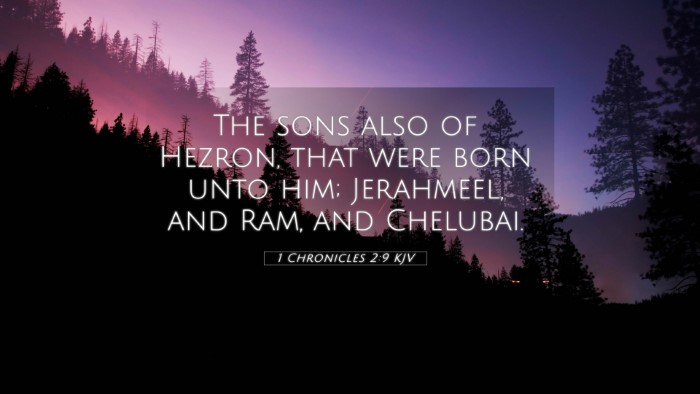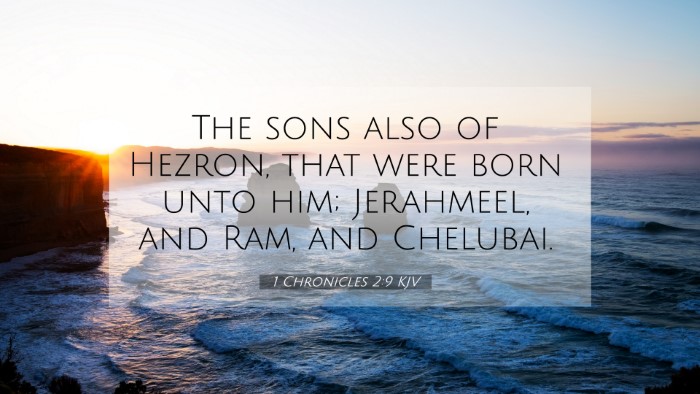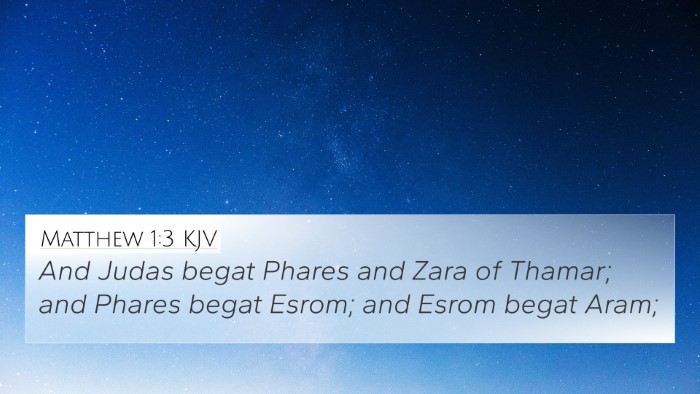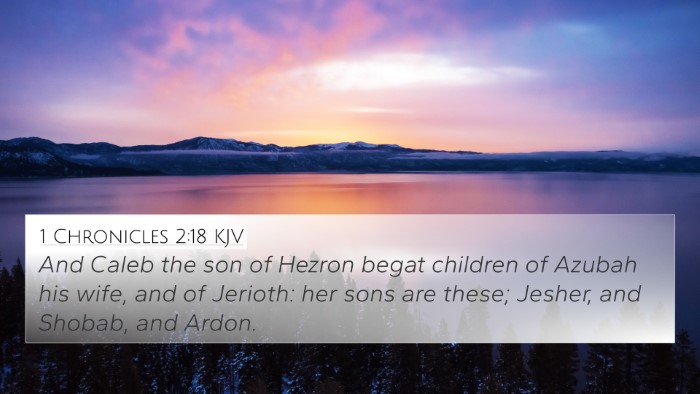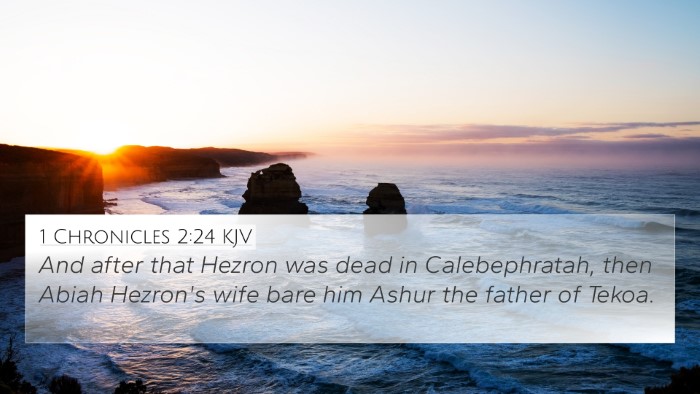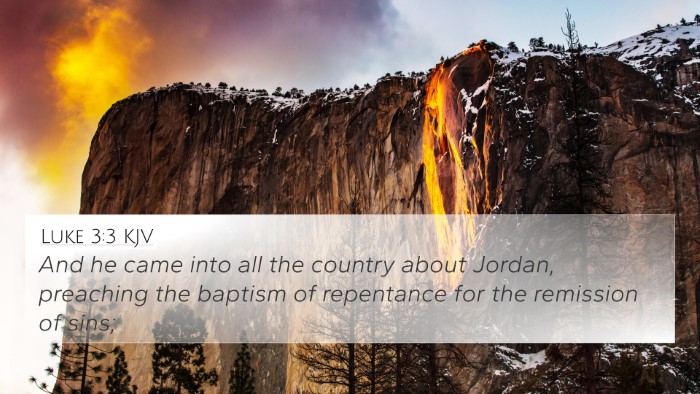Understanding 1 Chronicles 2:9
Verse: "The sons of Hezron, who were born to him: Jerahmeel, Ram, and Chelubai." (1 Chronicles 2:9)
This verse is part of a genealogical record in the Book of 1 Chronicles, highlighting the descendants of Judah. Understanding the significance of such lists can offer insights into the historical and spiritual context of Scripture.
Commentary Insights
Commentary by Matthew Henry notes that genealogies, while tedious, serve an important purpose in establishing the historical and tribal identities of Israel. Henry emphasizes that this particular ancestry points to God’s faithfulness in fulfilling His promises to Abraham through Judah.
Albert Barnes adds that the names mentioned have significance in the unfolding narrative of Israel’s kingship. The descendants of Hezron are pivotal, as they connect to the lineage leading to David, thus demonstrating the importance of family lines in God’s plan for redemption.
Adam Clarke highlights that the names listed offer a connection to the broader narrative of the Scriptures, and that through these genealogies, we can trace the fulfillment of God’s covenant promises through generations. Clarke notes how understanding these connections helps in grasping the overarching narrative of redemption in the Bible.
Cross-References for 1 Chronicles 2:9
This verse can be cross-referenced with several key Scriptures that enhance the understanding of its genealogical context:
- Genesis 49:8-10: Judah's prominence among the tribes is foreshadowed here.
- Ruth 4:18-22: The genealogy leading to King David is significant in understanding the fulfillment of this line.
- Matthew 1:3-6: The New Testament genealogy of Jesus traces back to Judah, reflecting the importance of this lineage.
- Hebrews 7:14: Affirms that Jesus comes from the tribe of Judah, highlighting the significance of these names.
- Numbers 1:20-22: Provides a context for the tribe of Judah and its descendants.
- Luke 3:33: A parallel genealogy that links to the lineage of Jesus, showing connections with Old Testament themes.
- 1 Samuel 16:1-13: The anointing of David, a descendant of Judah, is pivotal in the story of redemption.
Thematic Connections
The thematic connections between 1 Chronicles 2:9 and other Scriptures illustrate the rich tapestry of God’s plan through genealogies:
- Divine Selection: God’s choice of Judah for leadership (Genesis 49:10).
- Faithfulness of God: God’s promise to Abraham is seen through the lineage (Genesis 12:2-3).
- Role of Family in God’s Plan: The significance of lineages in understanding God’s intention (Exodus 20:5-6).
Tools for Bible Cross-Referencing
To explore the connections and themes further, you can utilize tools for Bible cross-referencing such as:
- Comprehensive Bible Concordance to find related verses.
- Bible Cross-Reference Guide for detailed study.
- Online Bible Study Tools that facilitate cross-referencing.
- Bible Reference Resources to enhance understanding of passages.
- Using a Bible Chain Reference system to link verses thematically.
Inter-Biblical Dialogue
1 Chronicles 2:9 not only serves its immediate context but also opens an avenue for inter-Biblical dialogue. The connections between the Old and New Testament reinforce the continuity of Biblical narrative:
- Seeing Jesus as the fulfillment of Old Testament promises made to Judah.
- Recognizing the importance of genealogies in establishing authority and identity in both Testaments.
- Understanding the significance of family and lineage in the context of God’s covenant relationship with His people.
Conclusion
The verse 1 Chronicles 2:9, while a simple genealogical mention, serves as a critical link in the rich history of God’s dealings with humanity. Through its connections with other Scriptures, this verse emphasizes God’s providence, the importance of heritage, and the unfolding of His redemptive plan through lineage.
As you explore cross-references and related themes, you will gain a deeper understanding of not only this passage but the overall narrative of Scripture, leading to a robust Bible study experience.

